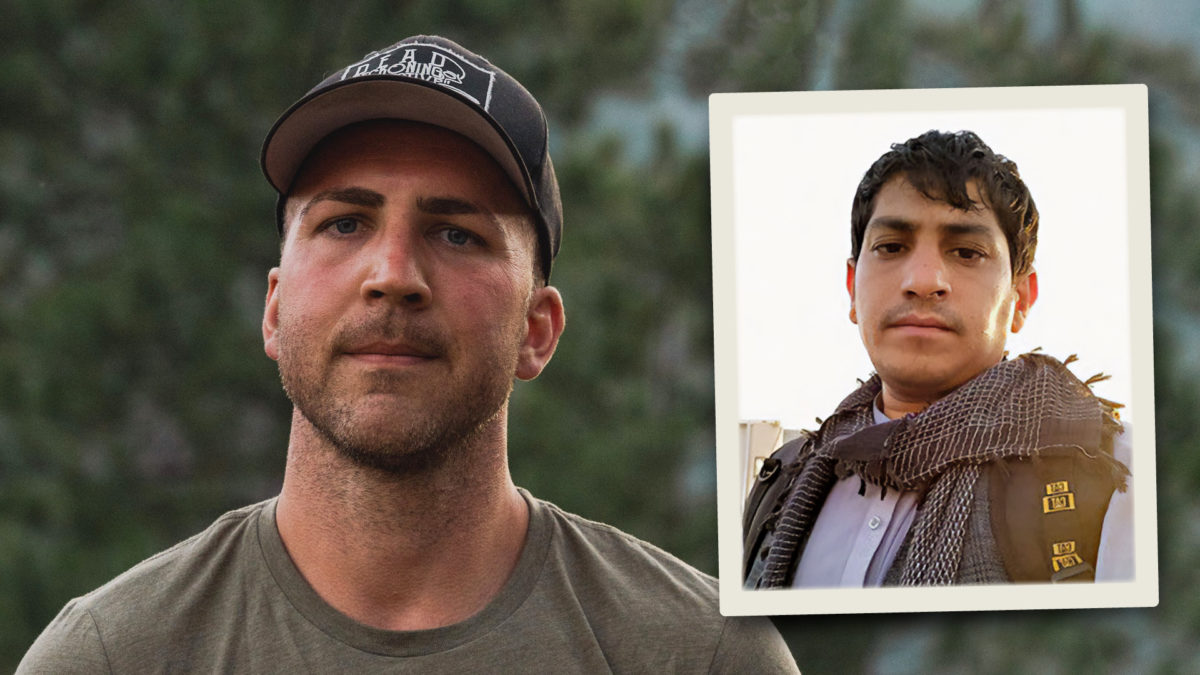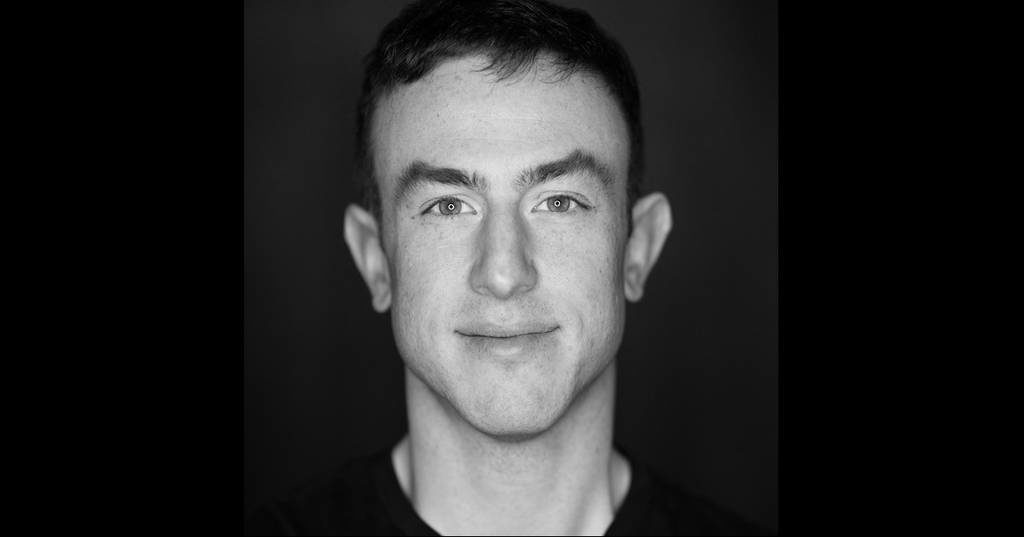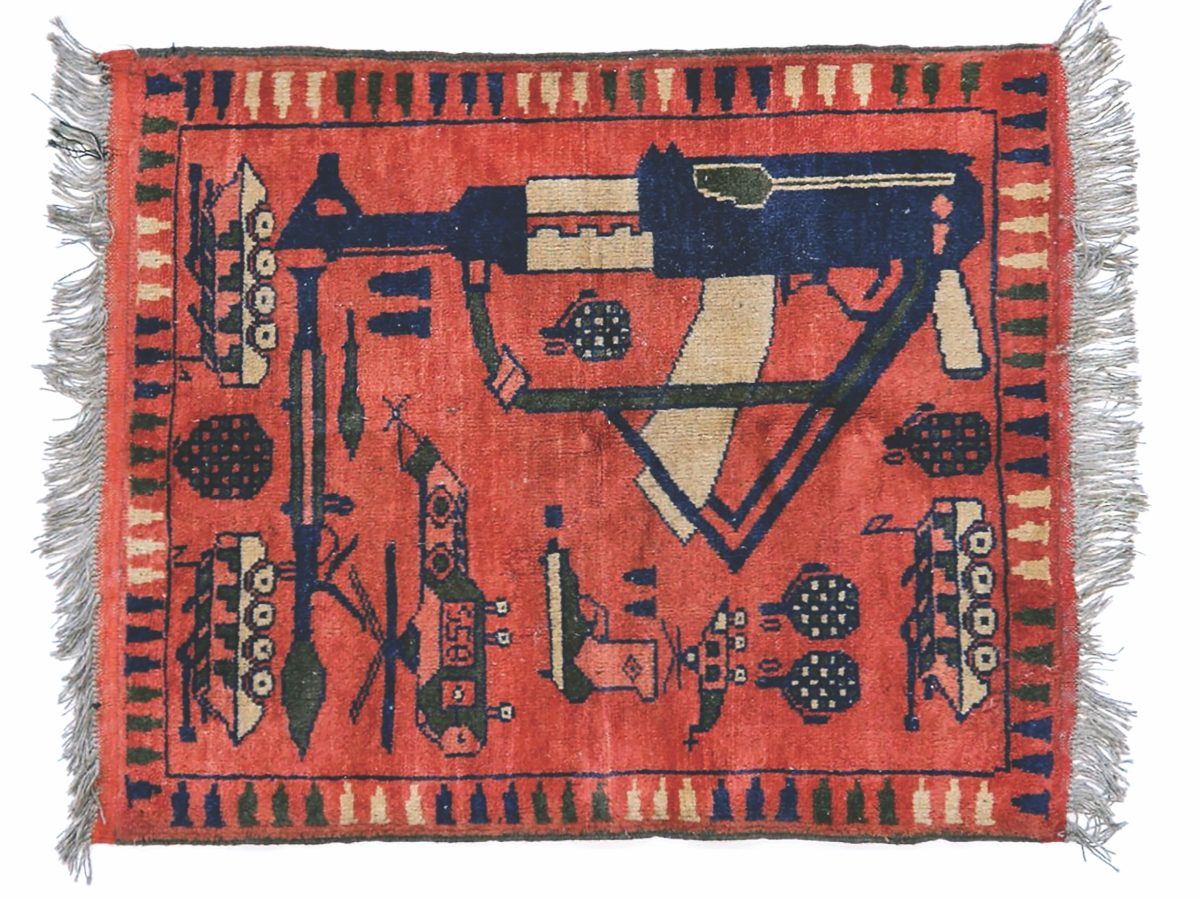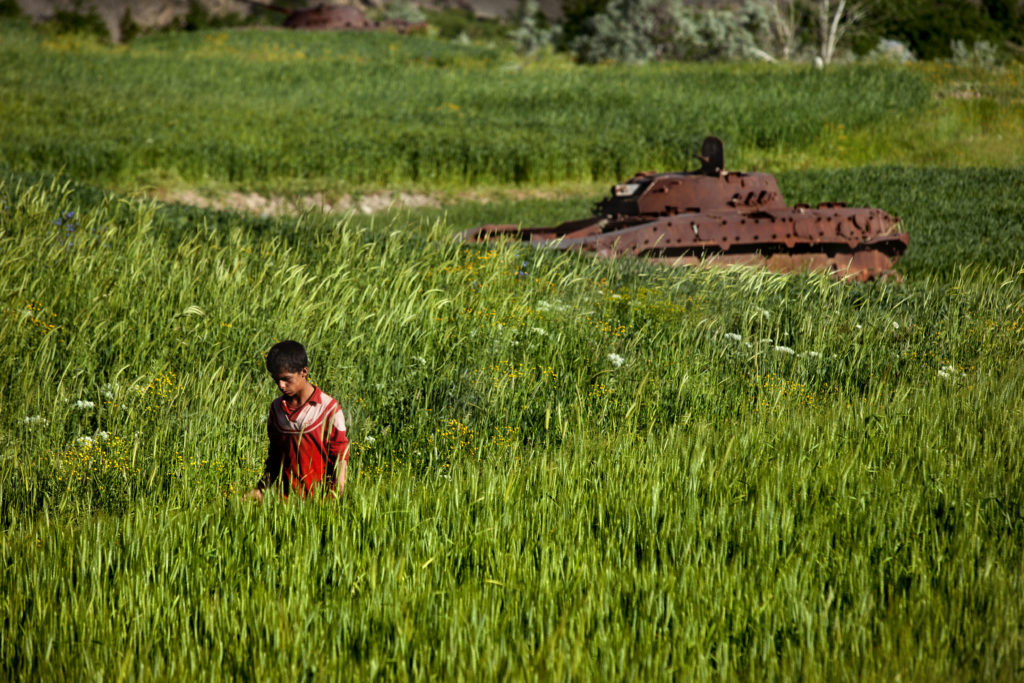A fine grit covered everything that hot day in 2010. With each step, another cloud of dust billowed up and coated uniforms, weapons and skin, then settled in mouths with a dry, acrid aftertaste. The Marines in Helmand Province of Afghanistan called it “moon dust.”
Lt. Tom Schueman watched as his squad of Marines moved slowly across the field, kicking up more powdery material with each measured step. The men of 1st Platoon, Kilo Company, 3rd Battalion, 5th Division were taking an agonizingly long time to get through the withered corn rows at the farm in the Sangin District. Their objective, a town controlled by the Taliban, was just ahead. First, though, they had to check every inch of the way for IEDs. The Marines moved carefully and deliberately as they swept the farm field.
Suddenly, a lone figure came running up to the platoon. The leathernecks flinched at first, praying it wasn’t a suicide bomber, then relaxed when they saw he was wearing a Marine uniform. It was Zainullah Zaki, their Afghan interpreter, whom everyone called “Zak.” He had been listening to the local radio chatter and had news for the lieutenant.
“Sir, the Taliban is setting up an ambush,” he told Schueman.
More Than an Interpreter
The Marine commander responded that his team was moving as fast as possible but had to make sure there were no boobytraps. One false step could mean dismemberment — or worse.
Zaki became agitated as he spoke. He knew the Taliban could start firing at any moment, which would be deadly for a squad caught in the open. Disregarding his own safety, Zaki sprinted through the cornfield to a nearby house. He prayed to Allah that there were no IEDs in his path.
The Afghan then burst through the door of a mudbrick house and knocked down a small, bearded man. In his hand was a radio, which the Talib was using to set up the ambush. Zaki grabbed the man by the neck and dragged him back to the Marines.
That was the moment that Schueman realized just how devoted his interpreter was to the Marines. An unbreakable bond and strong friendship of mutual respect had just formed. Blooded by combat, they became brothers in the best tradition of the Marine Corps motto: Semper Fidelis, “Always Faithful.”
“It was clear to me that Zaki was more than an interpreter,” recalled Schueman, now a major. “He was there to fight and serve right next to us. He just ran ahead into the village and spoiled the ambush. Zaki went across unswept ground where there were a lot of mines. That to me was just incredible bravery.”
GET HISTORY’S GREATEST TALES—RIGHT IN YOUR INBOX
Subscribe to our HistoryNet Now! newsletter for the best of the past, delivered every Monday and Thursday.
Enduring Bond
A new book details the remarkable relationship that developed between the two men during deadly combat in that faraway country and endured even after Schueman returned to the United States. Co-authored by both, “Always Faithful: A Story of the War in Afghanistan, the Fall of Kabul, and the Unshakable Bond Between a Marine and an Interpreter” chronicles how they made it through the war together, then how their friendship proved strongest when the country collapsed in terror and a daring rescue effort was needed to save the lives of Zaki and his family.
“We are brothers,” Zaki said in a Zoom interview. “Maj. Tom is family. We have brotherhood. In Afghanistan, we have same uniform. The Afghans would call me ‘infidel.’ I would say, ‘No, I am Muslim.’ They would ask, ‘Why you wear uniform?’ I tell them, ‘Because they are working with us together to build our country.’”
No One Wanted Any Tea
Schueman and Zaki first met in 2010. Both had been deployed to Helmand, which would soon become one of the bloodiest places on Earth. The harsh desert and hard people who inhabited the Sangin District were a different experience for both men. Schueman grew up in Chicago with a mother who was a cop. Zaki was from Asadabad City in Kunar Province, a greener, more pastoral setting than this hot, dusty, deadly setting
For Schueman, he expected to be part of a nation-building effort in Afghanistan. He had read the book “Three Cups of Tea” to better understand the culture and find ways of to win the hearts and minds of the people there. That ideal was shattered on his first day on patrol, when his platoon was ambushed before it even left its forward operating base.
“No one wanted any tea, and everyone wanted to shoot me,” Schueman recalled. “We thought if we just showed the people we were here to help, they would turn. No, the Taliban there were not interested in any of that.”
Recommended for you
Hostile Territory for Zak
Zaki was equally surprised by the conditions in the Helmand Province.
“The people, the culture, the language — it was all different. I didn’t barely understand what they were saying at first,” he said. “They speak Pashtun like me, but with a different accent. They were different people, hard people. They put IEDs in the mosques.”
The Marines engaged in fierce fighting, often battling the Taliban from house to house in each village. Zaki, who was not supposed to carry a weapon, would pick up a rifle from a fallen leatherneck to help defend their position when things got bad.
“Sometimes, when we were off the base, my team would give me a pistol for my protection,” the interpreter said. “It was too dangerous.”
Following his first tour, Schueman returned home. However, he knew the job wasn’t done and wanted to go back. He did so in 2012 but was not able to connect with Zaki. He said he felt lost without his former interpreter who always seemed to understand him.
“I needed Zak, who could not only translate for me, but could speak for me,” he wrote in the book. “More than that, though, I needed a friend.”
Bureaucratic Nightmare
Schueman went home after his second deployment. He and Zaki lost track of each other until the Afghan reached out to him via social media in 2016, when they rekindled their relationship.
It was about that same time that Zaki began to have doubts about the future of his country and the safety of his family. The Taliban, a relentless enemy who often threatened the interpreter with torture and death, was not going away. He decided to begin the process of emigrating to America through a program set up by the American government to help those who had assisted the military.
What should have been a slam dunk turned out to be a bureaucratic nightmare. Over the next five years, roadblock after roadblock stymied the effort to get Zaki and his family out of Afghanistan. Schueman tried to intercede on several occasions only to be told certain paperwork was missing or Zaki was not eligible for the program.
Matter of Life and Death
Things came to a head in 2020, when the United States and the Taliban signed an agreement to end the 18-year war and return control of the country to the extremist religious group the following year. Unfortunately, Zak’s case to leave the Afghanistan was denied because of “insufficient documentation.” The clock was now ticking as the enemy retook province after province.
“I felt helpless,” Zaki recalled. “The Taliban were killing interpreters. I was very worried for my wife and children.”
Back in the United States, Schueman felt equally helpless. No matter how hard he tried, he could not help his friend. Now, as the Taliban quickly regained control of the country, it appeared he could not save Zaki, a man he considered his “Marine brother.”
Getting to Kabul Airport
The fall of Kabul happened faster than anyone anticipated, including military leaders. The Afghan capital was captured by the Taliban on Aug. 15, 2021, even though U.S. troops still held the airport. Schueman and Zaki were in near-constant contact, trying to work out a last-minute solution before the interpreter would be caught up in the inevitable reprisals. The Marine officer acted without hesitation.
“I had to leverage a personal friendship,” said Schueman, who was at the Naval War College in Rhode Island at the time. “He was a pilot for the PJs [pararescue] in the Air Force. He said to get Zaki and his family to the gate at the airport and he would get them out.”
Three times they worked out a plan of extraction. Three times those efforts failed, as fear caused tens of thousands of panicked Afghans to surround the perimeter of the airport. Taliban checkpoints were everywhere.
The Marines have a saying: “Adapt and overcome.” Plans are going to break down, so improvisation is going to become a necessity. At that moment, Schueman began to feel like overcoming might be beyond a reasonable hope.
Extraction Team
With time almost out, the Marine major called his PJ friend again and asked him to do something. What happened next sounds like a scene out of a Hollywood action-adventure movie.
With loaded weapons, a rescue team leaped over the blast wall surrounding the airport and began searching for Zak, who was holding his screaming 3-year-old daughter. Schueman watched breathlessly on a video app. The scared family finally made it to a gate where they were allowed into the airport by a large American with a tattoo on his forearm of angel embracing the world and the words “That Others May Live.” The pathway to freedom was suddenly open.
“Maj. Tom’s friends came for us,” Zaki said. “They tried to find us at first, but it was too crowded. A SEAL team got me out with my family. They got us into the airport and put us on a plane. That was a sad and happy moment for me — sad because the enemy got control of our country and happy because we were safe.”
Fellow Americans
Zaki and his family eventually made it to the United States and slowly became acclimated to their new country. He now manages a carwash in San Antonio, where his family has connected with others in a small refugee community.
Stationed at Camp Pendleton in California today, Schueman is nearly 1,500 miles away from his friend. That has not stopped them from getting together whenever possible.
“We’re going to New York,” Schueman said. “We’ll be on ‘Good Morning America’ for the book. But I’m also planning to take leave and visit him in Texas. We make it a family thing. We’re two dads who really care about their families and want to get together when we can.”
Zaki agreed that the bond between the two men who became friends in a distant, deadly land remains indelible.
“We were brothers, we are brothers, we will be brothers all the time,” he said.
For these men, their relationship will remain always faithful.
“Always Faithful: A Story of the War in Afghanistan, the Fall of Kabul, and the Unshakable Bond Between a Marine and an Interpreter,” by Maj. Tom Schueman and Zainullah Zaki, will be published by William Morrow on Aug. 9.
historynet magazines
Our 9 best-selling history titles feature in-depth storytelling and iconic imagery to engage and inform on the people, the wars, and the events that shaped America and the world.









